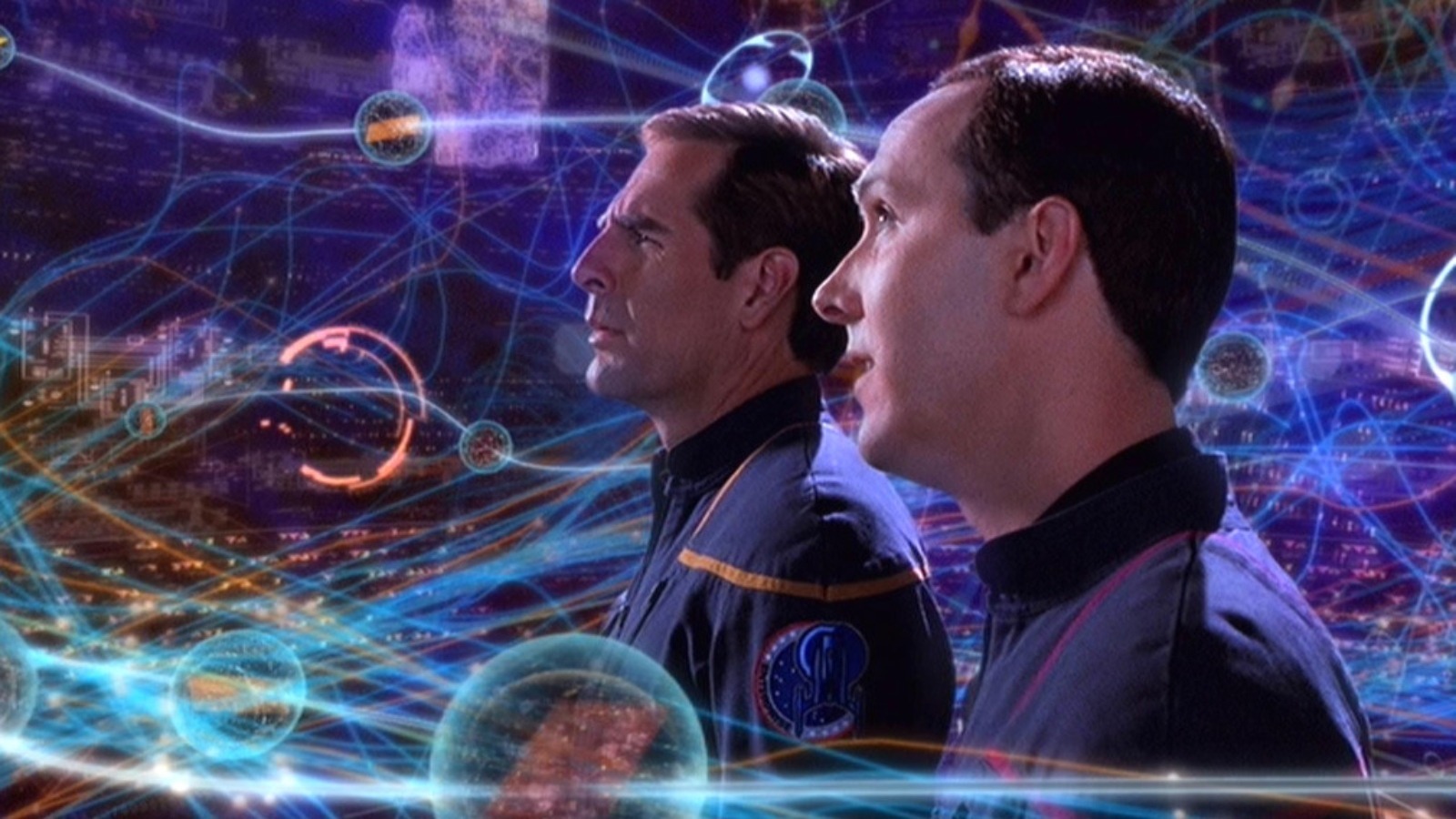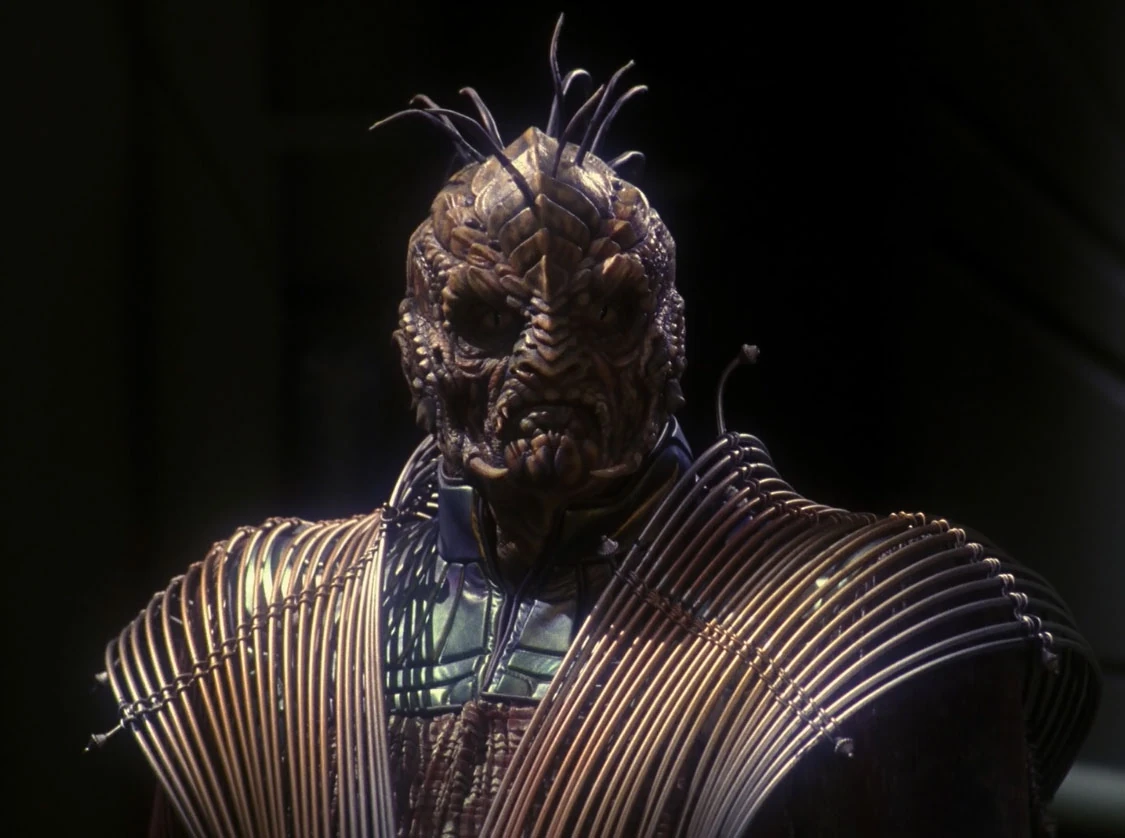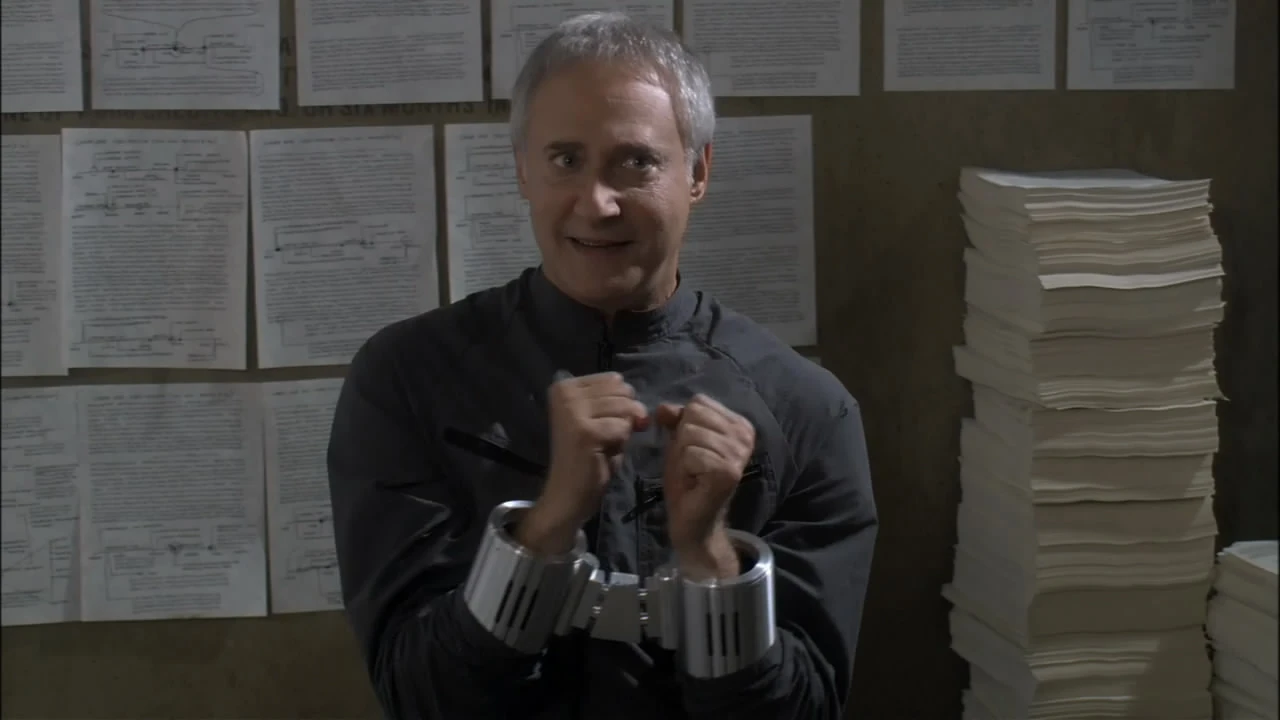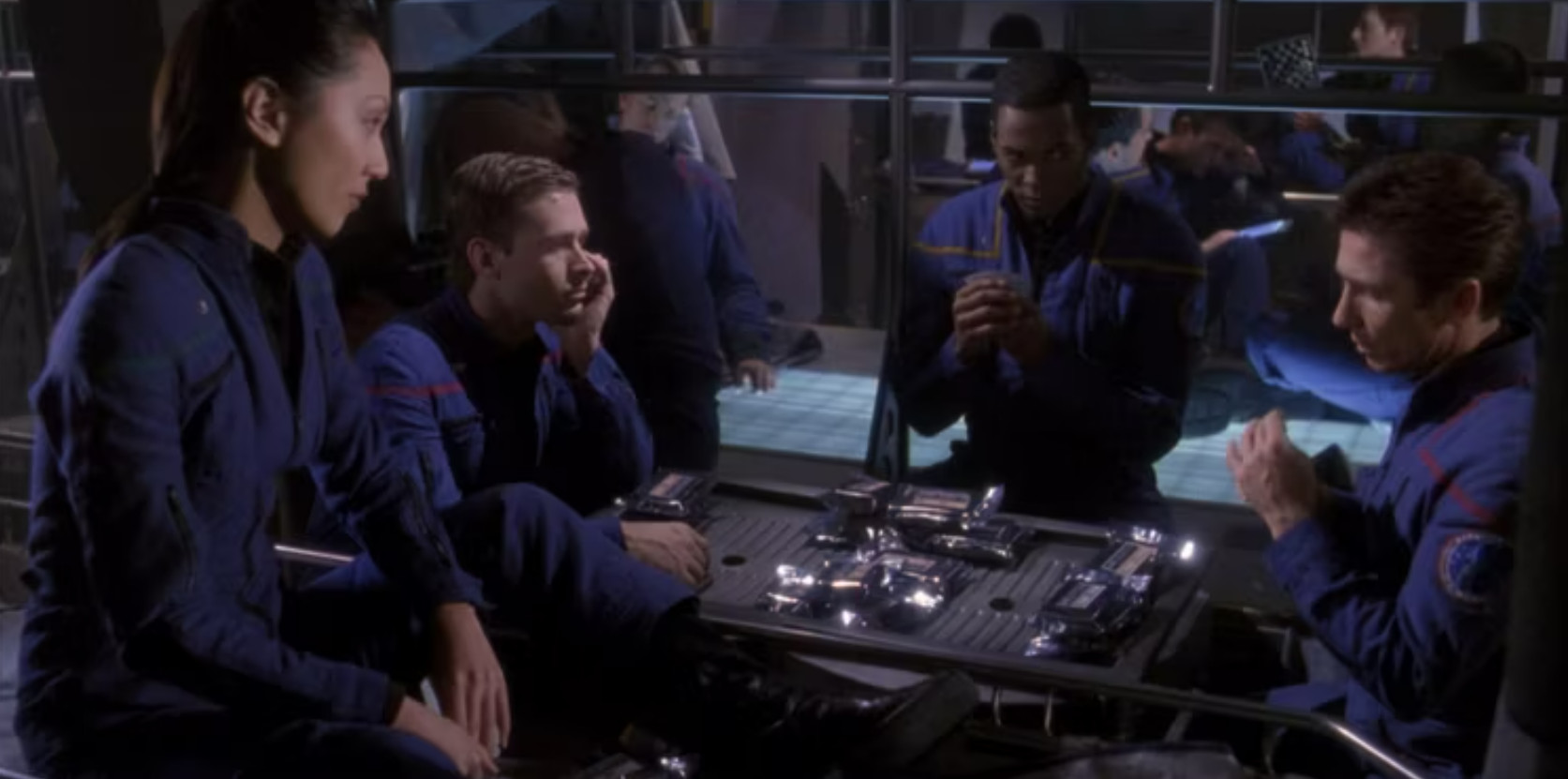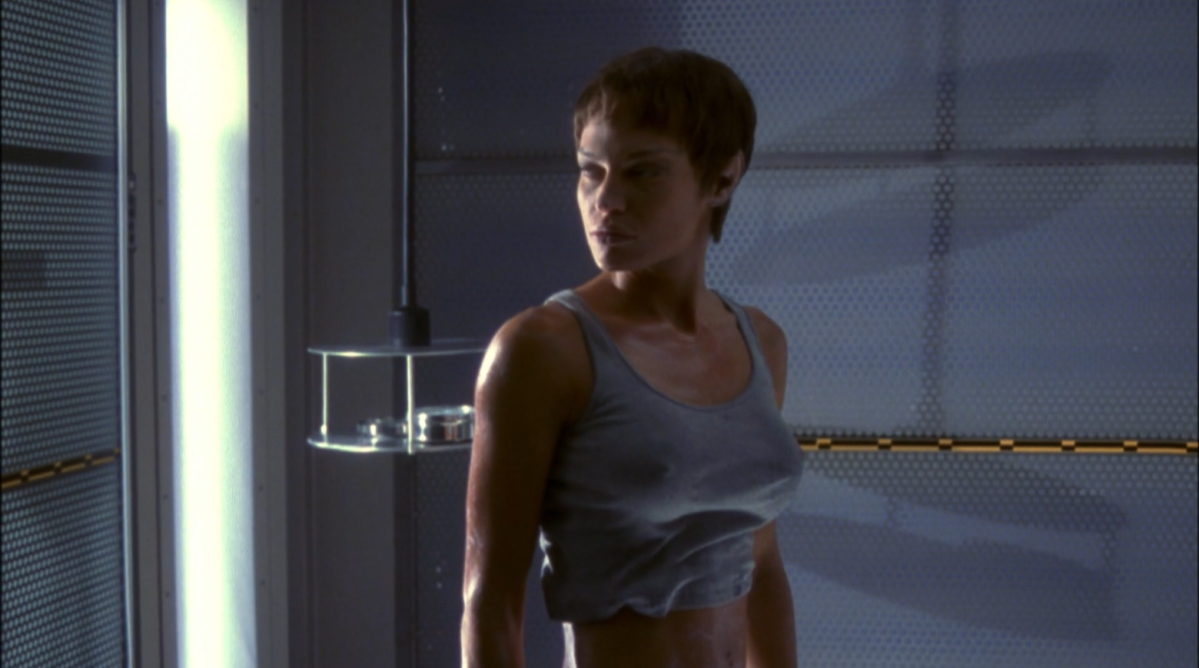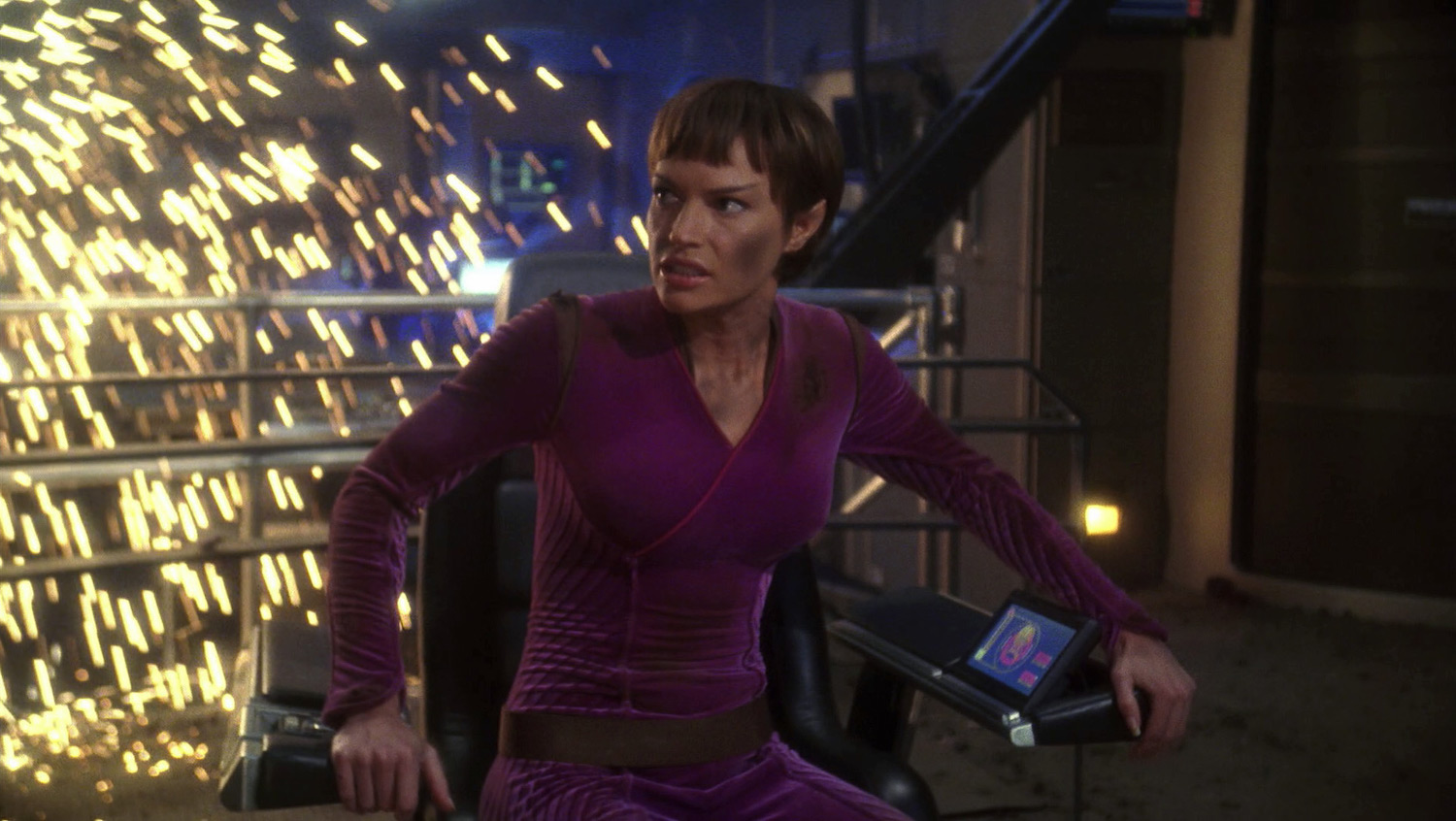You Should Watch ‘Star Trek: Enterprise’ — But…
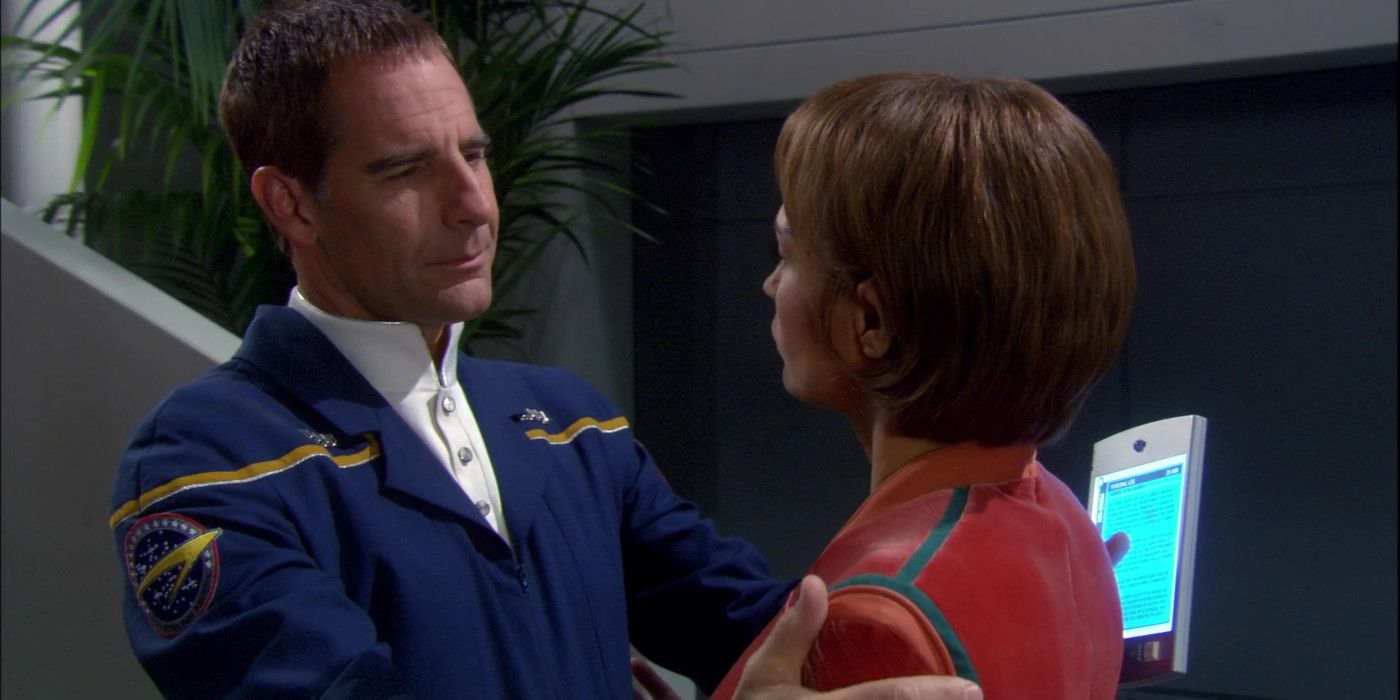
Star Trek: Discovery is over. But one of its parting gifts is a reference to the series which precedes it—Star Trek: Enterprise. About that.
Towards the end of the DISCO series finale “Life, Itself,” Captain Michael Burnham asks Kovich to reveal a secret: his real name. “Agent Daniels” is his reply. And in that moment, cell phone screens the world over lit up so that countless people could ask the obvious question: who the #$% is Agent Daniels?
The short answer is: Agent Daniels is a time traveler who first appears on Star Trek: Enterprise. The next logical question is: should I watch Enterprise? And the answer is “YES”. Of course you should! You should watch all the Star Trek shows and movies.
In fact, Star Trek: Enterprise and Star Trek: Discovery have a few things in common. They are both prequel series. They also both face a number of similar criticisms. They’re too dark! Edicts from the brass inhibits the writers from doing their best work! They don’t really find their rhythm until cancellation!
However, just because they face similar challenges, does not mean the shape of the resultant flaws are the same. In fact, in many ways DISCO and ENT are opposites. So when recommending Enterprise to recent Trekkies, qualifiers become necessary. Should you watch it? Absolutely. However, there are a few things to keep in mind.
But first, let’s talk about why Enterprise is worth diving into post DISCO.
The Temporal Cold War
The obvious reason to watch Enterprise after Discovery is to find out more about Agent Daniels. And to prepare you: he’s not in ENT much. However, the concept he introduces, the Temporal Cold War, its fingerprints are all over the sum entirety of Enterprise. Right from the pilot “Broken Bow” we see the Suliban Cabal and as well as their mysterious, future benefactor. Why is someone trying to change time? Why, indeed.
The Temporal Cold War is exactly what it sounds like. There are factions who can travel across time. There are accords over when time travel is allowed and when it’s not. And, of course, different factions break the rules all the time with disastrous results.
At the time, time travel was a source of frustration for Trek fans. Specifically, because the previous series Star Trek: Voyager did the time warp again (and again and again and AGAIN) fans were a little tired of time travel shenanigans.
Fortunately, time travel stuff is not an every episode situation on Discovery. It plays a major part in the transition from season two to season three, but it’s kept to a minimum otherwise.
Therefore, there’s less time travel burnout among Trek fans. Plus, it’s cool to see how the altered past of ENT connects with the far flung future of DISCO.
Star Trek: Enterprise After Dark
Star Trek executive producer Alex Kurtzman has a theory for why Star Trek: Discovery suffered in its first season—it was too dark. And this is absolutely one of the biggest criticisms against Enterprise, too. However, while Kurtzman says DISCO, ” was always intended to be a journey from darkness into light,” ENT embraces its darkness and its light in equal measure over the course of four seasons.
In the early 2000s audiences had to deal with a lot of one specific kind of content: 9/11 wank. If you were alive, you remember this well. Every show does a “war on terror and its complicated” arc. Enterprise is a perfect example of this. It’s entire third season is basically just 9/11 in space. However, while this was contentious at the time, two decades later there’s something fascinating about going back and seeing how Star Trek handles complex politics in the moment.
I’ll say it: Enterprise season 3 is good. Like DISCO there’s a focus on the season arc. We meet the Xindi, a group of aliens all working together to fight the Federation. And we get genuine complexity from our villains. Meanwhile, the NX-01 gets military on board and a sense of unease. Are they doing the right thing? It’s genuinely compelling television and if you enjoyed the darker side of DISCO, the Xindi arc is arguably the biggest reason you should watch ENT.
Also Season 4 is Very Good
Most people believe Star Trek: Discovery‘s fifth and final season is its best. In a bit of synchronicity this is true of Enterprise‘s fourth and final season. Helmed by the late great Manny Coto, the fourth season of Enterprise mostly plays across a series of multi-part stories. We get Nazis! We get Orions! The Vulcan home world finds itself in turmoil. Human’s go anti-alien. And, as is true of every season of Enterprise, we get the best version of the Andorians in Star Trek history.
You’ve undoubtedly heard the series finale is bad. And it is. But the season itself feels like both a throwback to what made the original Star Trek great while also taking advantage of everything that makes serialized television worthwhile. Dark? In places. But if Discovery is a show which builds itself towards the light of the Federation’s return, then Enterprise‘s final season is about the founding of that Federation in the first place.
All that being said, Star Trek: Enterprise does have its fair share of legitimate criticisms. And if DISCO is your first foray into the world of Star Trek, there’s some blemishes its best you know about before delving into Trek’s past generally, and into Enterprise specifically. Better to know this stuff is coming than to be blindsided by it.
Star Trek: Enterprise and “Diversity”
Star Trek: Discovery is the first show in the franchise with a gay married couple aboard. It’s the first time there’s a Black woman captain as the main character. The first trans and non-binary characters are on DISCO. And while there’s certainly plenty to debate as to the quality of the storytelling for those characters, there’s an undeniable effort on DISCO to make sure to make whomever might be watching feel represented and seen.
While all Star Trek shows attempt to keep their bridge crews diverse in one way or another, it’s safe to say that Enterprise does this the least. To recap: there’s Hoshi Sato and Travis Mayweather. That’s it. One Korean actor playing a Japanese character and one Black actor playing a character who basically has no character. That’s essentially your diversity. After five seasons of DISCO, it’s understandable if this kind of storytelling feels like a slap in the face.
Is Star Trek: Enterprise a bad show because the white characters basically get all the play? No. But it is the kind of thing you ought to know before you start watching. Every Star Trek show has its weaknesses. Heck, the original series seems to have a “women, am I right” scene in nearly every episode. That doesn’t mean the show is skippable. But it’s better to know ahead of time—especially if your only experience with Trek is DISCO.
And while we’re on the topic of women and Enterprise…
Move Over Seven of Nine, It’s T’Pol’s Time To… Oh, No. Not Again.
The original Seven of Nine costume Jeri Ryan has to wear is so tight she passes out wearing it. And there’s a lot of revolt among actors, crew, and fans over the sexualization of Seven. Surely things would improve. Right?
No. Truly, the part of Enterprise which remains hardest to swallow is the hyper HYPER sexualization of Jolene Blalock’s character, Sub Commander T’Pol. Yes, the Vulcan science officer on the NX-01 is subject to some of the most unpleasant nonsense in the history of Star Trek. Captain Archer’s face winds up in her chest for no reason. Basically everyone on the ship fantasizes about her. Two crewmembers who think she’s dead even drunkenly talk about her “bum”.
Jolene Blalock, like Jeri Ryan before her, suffers these indignities week after week while still churning out many of the best performances in the show. T’Pol expands our understanding of Vulcans. Seeing her entire time on Enterprise gives us a chance to really see why a full Vulcan finds humanity intriguing. Blalock is a great actor and T’Pol is an exciting character when the show lets her be something other than sweaty and in various stages of undress.
But her costumes are all pajamas with lines specifically designed to show off her body. It’s worth noting that every character, the men included, get sexualized on Enterprise. However, T’Pol gets it the most and after four seasons of Discovery being equal-opportunity horny it’s best to know that going in.
All that being said…
Consensus: There Ain’t One
If you look up any episode of any show in the franchise from Star Trek: The Original Series through Star Trek: Voyager, there’s a clear delineation over which episodes are good and which ones are skippable. One of the most interesting things about Enterprise is that universal consensus does not exist. There are exceptions, of course. “Dear Doctor” and “These Are The Voyages” are generally disliked. And most people like the Borg story as well as that glimpse into T’Pol’s family past.
However, I’ve found over the years that there’s endless debate over whether most episodes work or don’t. While most of Star Trek’s past has been talked to death, Enterprise remains in many ways the undiscovered country.
I would argue that Enterprise, more than any other past Star Trek show, is the right series to dig into post Discovery. They’re commonalities are just as plentiful as their differences. They both deal with ships trying to build relationships with other worlds. And they both take weird risks that will make you cheer as much as scratch your head.
Just one thing: Enterprise streams on Paramount Plus, but only with 2.0 audio. The Blu-rays are 5.1 DTS Master Audio. It does make a difference. All I’m saying.

